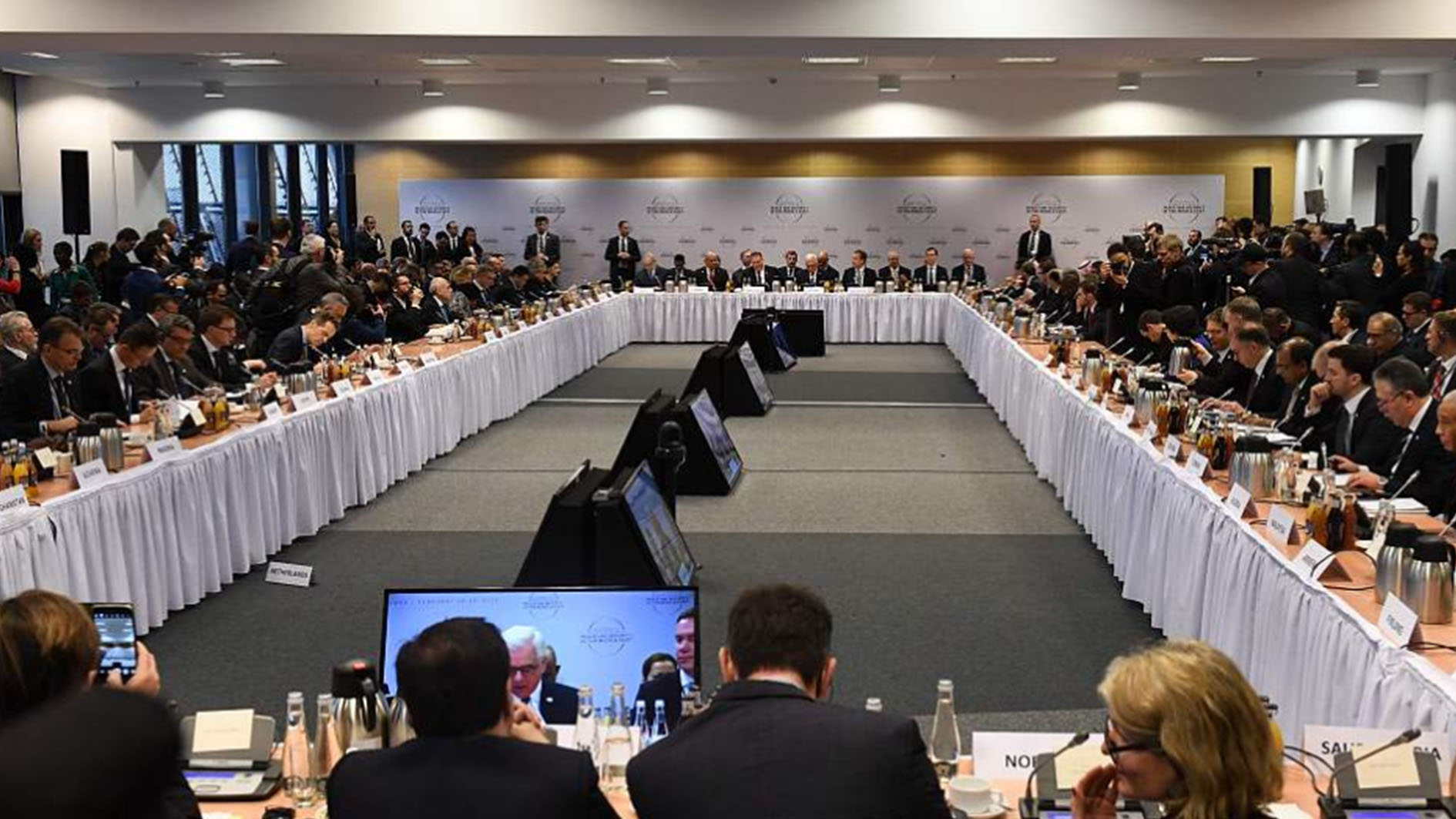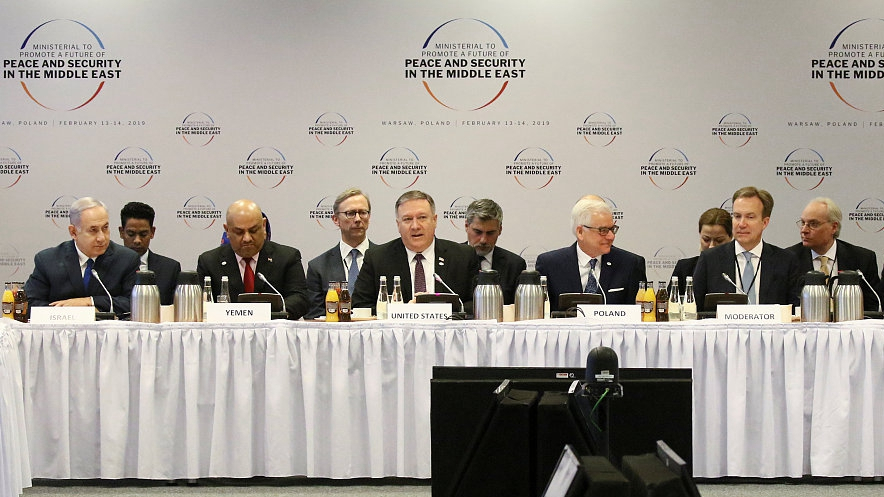
Middle East
10:54, 15-Feb-2019
Decoding 'Arab NATO' plan
Nayan Seth
02:22

The Trump administration has in recent months been quietly working to create a new security alliance in the Middle East called the "Arab NATO". So what exactly is the plan, and does it mark a complete shift from the traditional U.S. Middle East policy?
The "Middle East Strategic Alliance" is the latest U.S. bid to unite regional powers in the Middle East.
The proposed alliance includes six Gulf Arab states, namely, Saudi Arabia, UAE, Bahrain, Kuwait, Qatar and Oman along with Egypt and Jordan.
The U.S. has made it amply clear that this alliance would be aimed at countering Iranian influence in the region.

Israeli Prime Minister Benjamin Netanyahu (Front L) , U.S. Secretary of State Mike Pompeo (Front C), Polish Foreign Minister Jacek Czaputowicz (Front 2nd R) and White House adviser Jared Kushner (Front R) attend a plenary session at the Middle East summit in Warsaw, Poland, February 14, 2019. /VCG Photo
Israeli Prime Minister Benjamin Netanyahu (Front L) , U.S. Secretary of State Mike Pompeo (Front C), Polish Foreign Minister Jacek Czaputowicz (Front 2nd R) and White House adviser Jared Kushner (Front R) attend a plenary session at the Middle East summit in Warsaw, Poland, February 14, 2019. /VCG Photo
But experts say the "Arab NATO" dream is a non-starter as major players in the region do not have just Iran on the mind.
The biggest roadblock, it seems, is the Saudi-led economic blockade against Qatar which has now entered its second year.
In 2017, Saudi Arabia along with the UAE imposed a land, sea and air blockade, accusing Qatar of aligning with Iran.
Qatar is home to the biggest U.S. air base in the Middle East but has improved its ties with Iran since the blockade.
The second biggest challenge is the growing unease over the war in Yemen.
The war, launched by the Saudis in March 2015 against Houthi rebels, is increasingly losing regional support and one member of the "Arab NATO" seems to be having its own strategic agenda.
In October last year, Kuwait signed a defense treaty with Turkey, which has close ties with Qatar.
So, fighting Iran isn't a priority for the so-called "Arab NATO" and then there is U.S. Middle East policy, which analysts say is puzzling and lacks clear goals.
The Middle East is a region in which the U.S. has interfered, waged wars, and struck deals.
For decades, a change in administration in Washington didn't significantly alter its Middle East policy. The U.S. focused on maintaining American geo-political influence in the oil-rich region.
But under Trump it's changing...
As Trump pursues his "America First" policy, it wants allies worldwide to shoulder more of the burden in confronting regional security threats, hence the troop pullout from Syria.
But experts say it defies logic as it gives Iran a free pass in Syria.
So till now "Arab NATO", it seems, is a grouping of contradictions: parties who cannot even agree to disagree.

SITEMAP
Copyright © 2018 CGTN. Beijing ICP prepared NO.16065310-3
Copyright © 2018 CGTN. Beijing ICP prepared NO.16065310-3